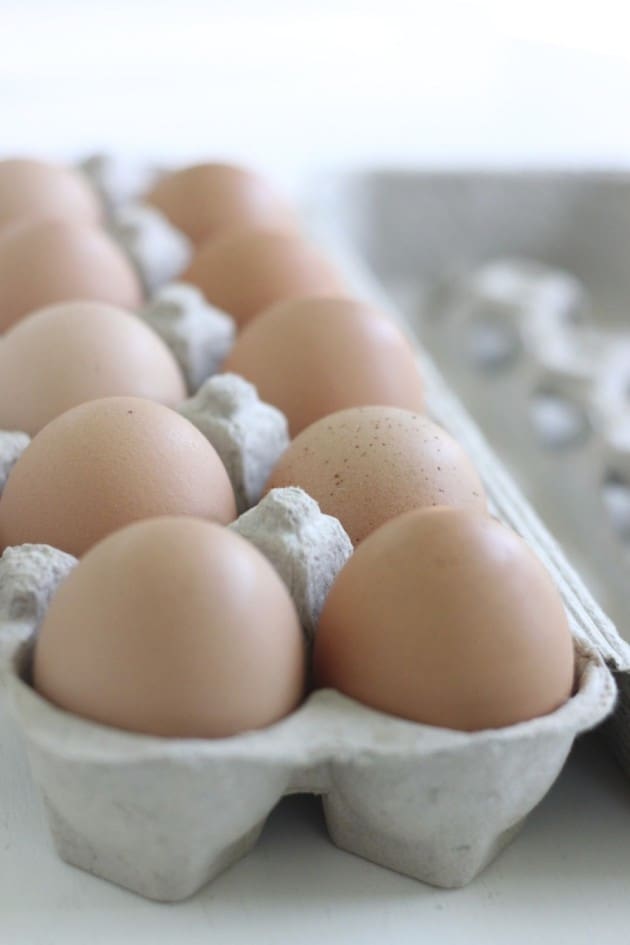Cholesterol is a HOT topic in the world of nutrition, and I’m frequently, “Is the cholesterol in eggs unhealthy?”
Interestingly enough, recent research has shown that intake of fat and dietary cholesterol may not impact your serum cholesterol levels (i.e. HDL and LDL) as significantly as was once thought.
Now this doesn’t mean that we can go out and eat all of the eggs, butter and red meat we can tolerate, but there is evidence to show that blood cholesterol levels are more linked to cholesterol synthesis by the body rather than the absorption of cholesterol from foods. Cholesterol is important in the human body (in making hormones, Vitamin D, digesting foods) that it’s found a way to make it even if we don’t eat it. That’s where genetics comes into play.
What’s more important than just the serum cholesterol numbers is the ratio of your HDL, or “good” cholesterol, to LDL, the “bad” cholesterol.HDL is the good guy because it floats around in your blood, picks up cholesterol from your tissues and brings this gunk back to your liver which disposes of it. They’re like little cholesterol garbage trucks. This allows your tissues to take up more of the “bad” LDL cholesterol. I hate that LDL has such a crappy reputation – it’s really only bad when there’s too much in your blood. When there are too many LDLs in your blood, they are more likely to become oxidized and wreak havoc on your arteries which may lead to coronary artery disease. The ratio is important because having enough HDL around to pick up cholesterol will indirectly reduce the amount of LDL in your blood.
Even though genetics plays a huge role in your serum cholesterol levels, there are some dietary & lifestyle changes to improve our LDL:HDL ratio which, per WebMD, should be 3.5:1 (bad to good).
- Don’t replace dietary fat & cholesterol with carbohydrates. Research has shown that replacing saturated fat and dietary cholesterol with carbohydrates, which are typically low in fat and cholesterol, may increase your LDL and reduce your HDL cholesterol.
- Instead, replace saturated fats with healthier unsaturated fats. Use oils instead of butter: sunflower, corn, soybean, and flaxseed oils are good sources of polyunsaturated fats (the Omega 3s) while olive, peanut, and canola oils are good sources of monounsaturated fats.
- Eat at least one good source of Omega-3s per day: fish, ground flaxseed, flaxseed oil, or walnuts, just to name a few. Just one of my healthified buckeyes has 66% of your daily Omega 3s because they’re made with ground flaxseed!
- Cut out trans-fat. All of it. Trans fats are man-made fats and research definitely shows that they’re more harmful to our bodies than say, natural saturated fats. They’re commonly found in highly processed, packaged foods that are, well, man-made. Trans fats are listed under “Fats” on the food label but also can be seen in the ingredient list as “partially hydrogenated…” If you see this on the back of a package at the grocery store, I recommend putting it back on the shelf and choosing something more natural.
- Researchers don’t really know how someone can increase HDL by diet but regular cardio exercise has been shown to jack it up a bit!
The Harvard School of Public Health did a great job at summarizing some of the recent research and the current school of thought on dietary cholesterol, good vs. bad fats and what it all means for heart health. Check out the link for more info, and if you’re a nerd like me, read some of the references/studies they list.


I’m looking for the recipe to your healthified buckeyes but the link on this page seems to be broken. They look awesome on Pintrest and I would like to make them.
Thanks so much!
Colleen
Ros would be so proud.
I’m tempted to email her the link ;)
I really like this new section of yours. Thanks for passing along your dietetic knowledge!
LOVE this post! It’s so informative :). Thank you!
Thank you for this!! Happy Friday!
Wow, this is SO helpful. I think I’m going to like these Friday blog posts! :)